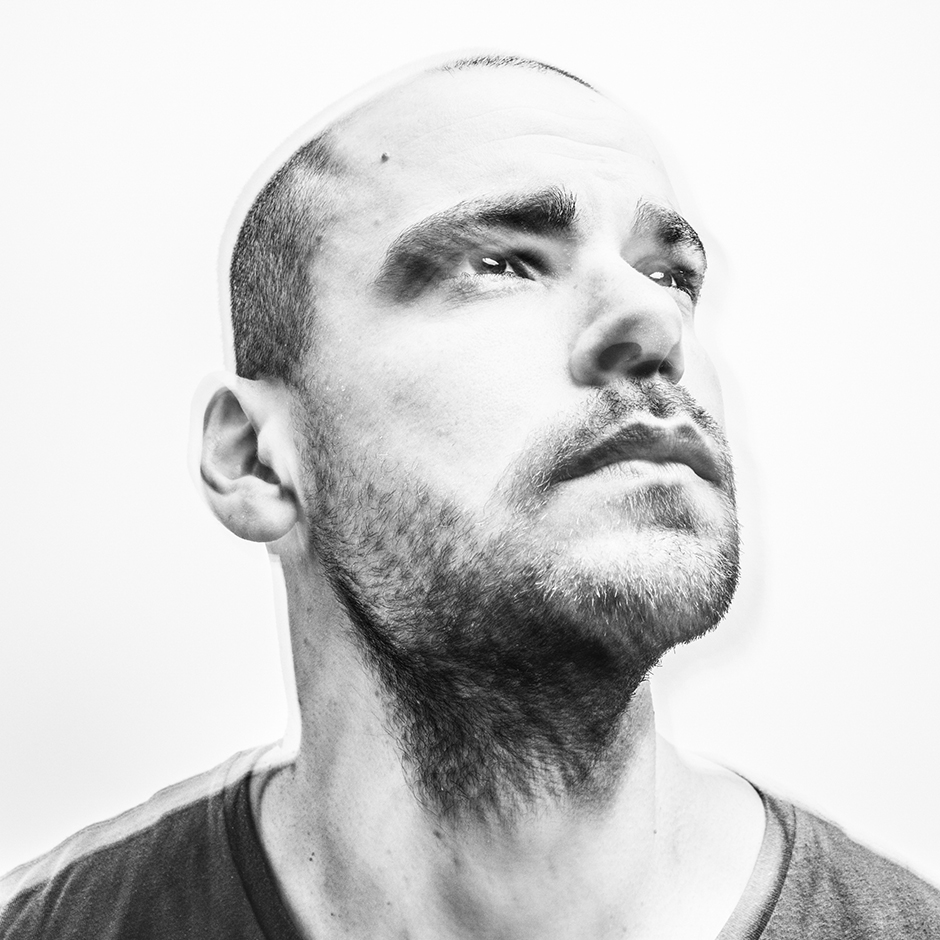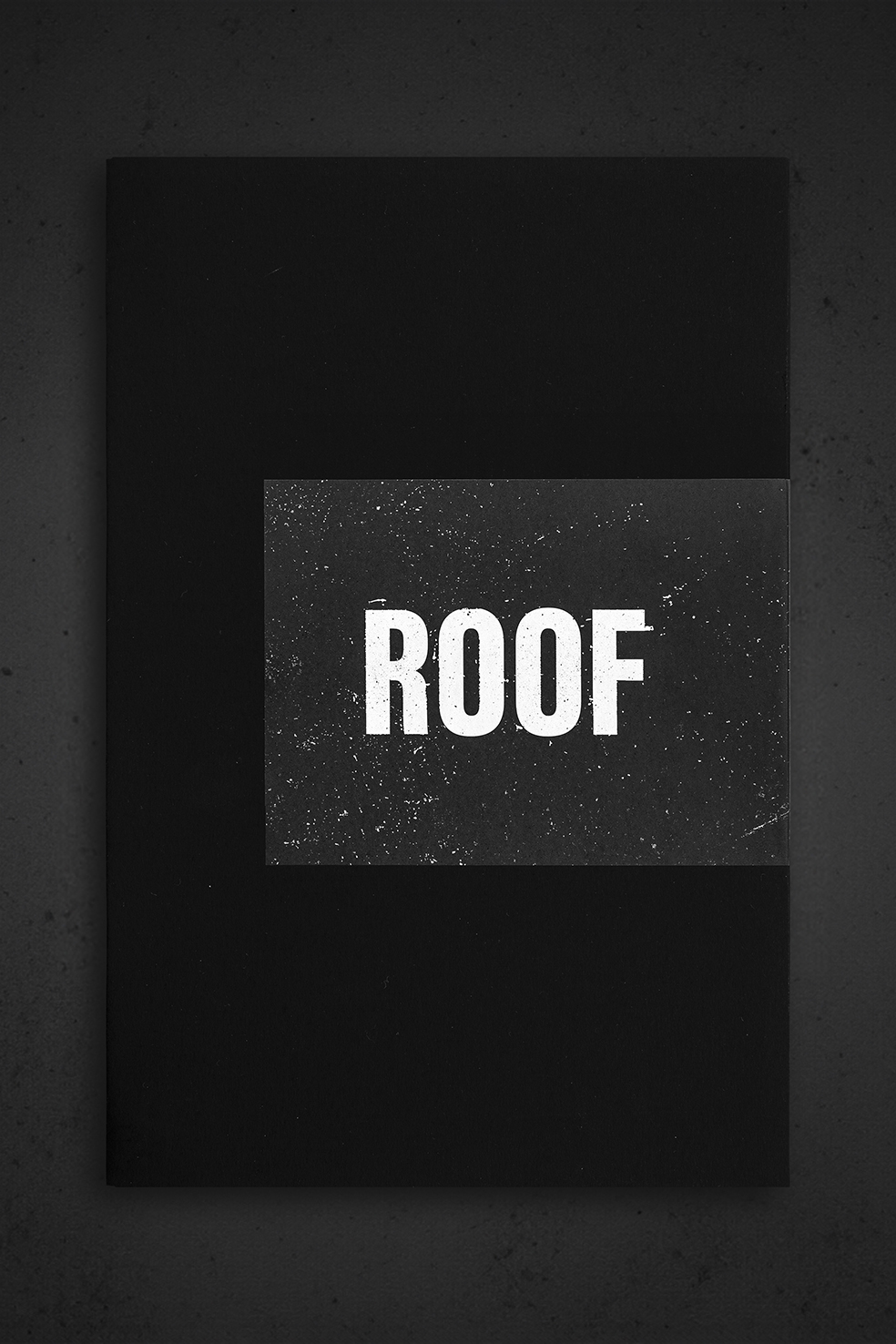
Mario Cruz
Interview by
Svetlana Bachevanova
Mário Cruz was born in 1987, Lisbon, Portugal. He is an independent photographer, editor and curator, focused on social injustice and human rights issues. He’s the founder and director of NARRATIVA a photography center in Lisbon aiming to share and value photography as a form of expression and communication. Cruz is the author of three books: Talibes: Modern Day Slaves, FotoEvidence 2016; Living Among What’s Left Behind, Nomad and FotoEvidence, 2019; Roof, Narrativa and FotoEvidence, 2024
Your latest book ROOF begins with a reference to Article 65 of the Constitution of the Portuguese Republic that states,“ Everyone has the right for themselves and their family to have an adequately sized dwelling that provides hygienic and comfortable conditions and preserves personal and family privacy.” What is ROOF about?
ROOF began as a testimony to a devastating consequence of the 2010-2014 economic crisis in Portugal. I noticed signs of life in abandoned buildings throughout Lisbon and discovered that those who lost their jobs and homes found in those places a new roof to survive. But soon ROOF transformed into an essay that follows a chronic problem in Portugal - housing - to the point of documenting how working people with stable lives struggle under degrading conditions in Europe's number one city destination. These people survive on the scraps of what others reject and occupy abandoned buildings, boarded-up factories, vacant schools or rusty shipping containers in an effort to transform them into something resembling a home.

Photo: Mario Cruz 26 April 2014
Mr. Gomes, 63, inside his room in an abandoned villa in Lisbon. The walls and ceilings don't hide the past nor the abandonment. He worked all his life in the construction business, one of the sectors that suffered the most from the 2011 - 2014 crisis.
ROOF is developed in a course of a decade (2013-2023). What has changed since 2013 in the housing policy of Portugal?
During the Troika bailout, Lisbon's housing stock consisted of around 2,800 “partially unoccupied” buildings and more than 1,800 “completely abandoned” buildings, according to a Lisbon City Council study released in 2013.
From 2013 to 2023, Lisbon has changed significantly but the housing problem has not been resolved, it has only gotten worse. Successive governments have never really invested in public housing and Portugal continues to have thousands of vacant buildings that could provide homes for thousands of Portuguese people.
In 2024, Lisbon was named the most expensive city in Europe to rent a home by the International Housing Anywhere Index, based on an analysis of 64,000 properties across 23 European cities. Meanwhile, the Portuguese capital is considered the “Best Urban Destination in Europe” at the World Travel Awards 2023. Property speculation coupled with low wages make renting and buying a home suffocating for the majority of lower and middle-class Portuguese people.
It is important to understand that the minimum wage in Portugal is only €820 and that there are no houses in the Portuguese capital for those who receive this salary. Furthermore, even for those who earn more than the minimum wage, it is almost impossible to find a house. The new buildings that are being built are all aimed at the upper class. There are adults who return to their parents' homes and young people who come together to pay rent and live in cramped quarters. All it takes is for the lease contract not to be renewed by the landlord and for someone not to have family support to find themselves homeless. It's very easy to end up in the world of ROOF.
The book was released in the year that marks the 50th anniversary of the April 25th Revolution when Portuguese military overthrew Antonio de Oliveira Salazar's authoritarian regime and promised to change the lives of the Portuguese people. History tells us that thanks to the revolution, 8.7 million citizens regained a freedom that most had never known. Why did you select the 50th anniversary for the release of ROOF?
ROOF was released last April 27, two days after the 50th anniversary of the April Revolution. For me, it made perfect sense to take advantage of the celebration to reflect on what still needs to be done. The revolution brought freedom and much more, including the Portuguese constitution shortly afterwards. And, in the constitution, the right to have decent housing is very explicit. ROOF is evidence but is also a tool to reflect on a right that has yet to be fulfilled. The April 25th celebrations were focused on the past, remembering the achievement of freedom. ROOF came to remind us that while we are celebrating there are thousands of Portuguese people who suffer in silence, hidden in abandoned buildings and in conditions that shame those who fought for the revolution.
In conjunction with the release of the book you mounted in Lisbon an immersive exhibition with different installations, one of them was built to recreate those who survive next to Belém Palace, the official residency of Portugal’s President, Marcelo Rebelo de Sousa, who embraced the mission to “end homelessness in the country”. What was your message and how were the installations received by the hundreds that celebrated democracy on this day?
NARRATIVA’s team and I mounted an exhibition in which visitors could enter several installations meant to recreate different houses built in abandoned places - factories, business buildings, schools and apartments.
The exhibition took place in an abandoned public building surrounded by Airbnb rentals in downtown Lisbon. It wasn’t a pleasant experience to visit each room but it was a necessary exhibition that caused astonishment among thousands of tourists and indignation among many Portuguese.
In addition, posters were spread around the city exclaiming the numbers of homeless people versus the number of abandoned buildings, what is the minimum wage versus the cost of renting a house.
ROOF portrays the homeless who are not included in the statistics because they do not sleep on the streets. They are invisible and now I think Portuguese society is more aware than ever about what’s happening, not only in Lisbon. but in different parts of the country.
You are known as someone who engages with the topics you address. You presented your work addressing the slave like conditions of the talibes in Senegal in front of the European commission. How far are you ready to go with ROOF?
So far ROOF has been widely shared in Portuguese society. The exhibition was indeed important and took place at the right time and place.
However, the book has the ability to endure over time and serve as proof. The unique construction of the book creates a direct connection to the reality of the ROOF - a sealed box in which a barrier has to be torn apart to access the book. And when you enter the box you find several pieces, just like when you enter a house you have several rooms. Each piece has its own shape, its own touch, appealing to the awareness of the diversity of documented cases and locations. The box is the house holding the proof of the life of the invisibles. All the evidence is under the same roof in this book.
To continue the path of using photography as a form of awareness, I hope to be able to work with organizations that are dedicated to supporting these people and also show the exhibition in other Portuguese cities and outside the country. The next step is to take ROOF to those in power. I hope to convince the president to get to know his homeless neighbors and to do so he will receive a book as an invitation.

Photo: Mario Cruz 27 November 2023
One of the many houses built inside an abandoned school in Lisbon.

